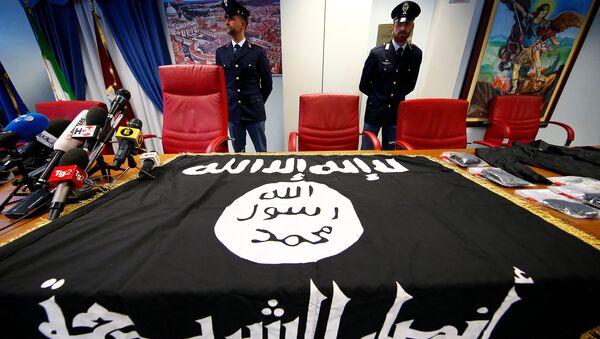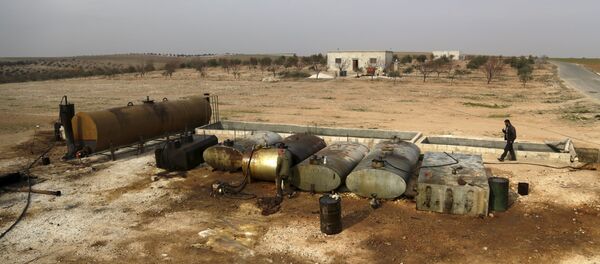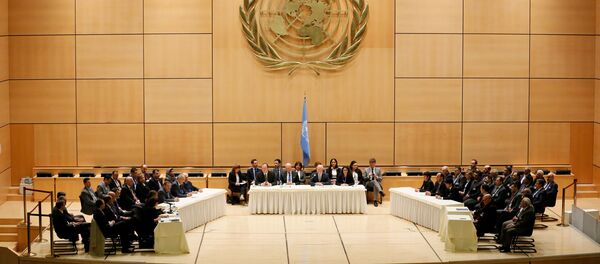According to Feoktistov, information on the issue has been shared with the United States.
"In order to provide evidence to the allegations, we shared with Americans the names of the banks involved in investing money in two countries in Western Europe," he told journalists as a result of a meeting with a US delegation under the Financial Action Task Force (FATF) framework.
The intergovernmental organization was established to combat money laundering and terrorism financing.
According to Feoktistov, earlier there were already reports on Daesh’s attempts to invest in real estate in New York City and Turkey.
Furthermore, the diplomat noted that the counterterrorism operation in Syria and Iraq, including attacks on energy infrastructure facilities, has resulted in a significant decrease in Daesh oil and natural gas incomes. In the last couple of years, their monthly energy incomes dropped from $50 million to $12-20 million.
He also said that since the beginning of the operation the US-led coalition has destroyed nearly 2,000 Daesh tanker trucks. At the same time, the Russian Aerospace Forces destroyed in Syria some 4,000 tanker trucks, 206 oil and gas production facilities, 176 refining facilities and 112 oil transportation facilities.
The situation is resulting in Daesh’s attempts to find new sources of income, including public extortions, ransoms and cultural artifacts traffic.
Feoktistov also said that Daesh has made attempts to take control over drug smuggling traffic coming from Afghanistan. There are reports that the terrorist group is engaged in controlling migrant smuggling to Europe. The terrorists have also attempted to invest in pharmaceuticals, the medical industry and construction. Daesh also sells wheat and rye in the grain market.
Feoktistov said that Daesh took control over a phosphate mine and a phosphoric acid producing plant in Iraq and salt mines, cement factories and some other facilities in Syria.
Commenting on the results of the talks with American colleagues, Feoktistov said that Russia has offered the US to co-sponsor a UN Security Council resolution that introduces a full trade and economic embargo on Daesh, seen as the most efficient way to cut the financing of the terrorists.
"The most efficient way to do that [i.e., impose a trade and economic embargo] would be by expeditiously adopting a new UN Security Council resolution that introduces a comprehensive trade and economic embargo against territories under Daesh control. … Today we proposed to our US counterparts to consider co-sponsoring this resolution," he told journalists.
According to the diplomat, Russian experts are finalizing a draft resolution and plan to hold talks on it with representatives of Syria and Iraq, as well as with China, Kazakhstan, the United States, and the other members of the UN Security Council.
In 2014, Daesh launched a full-scale offensive in Syria and Iraq, seizing large territories in both countries. Despite a number of successful anti-Daesh operations conducted both by Damascus and Baghdad with support of airstrikes carried out by an international coalition and Russia, Daesh still has control over its main stronghold in Syria's Raqqa and parts of the second biggest Iraqi city of Mosul.




